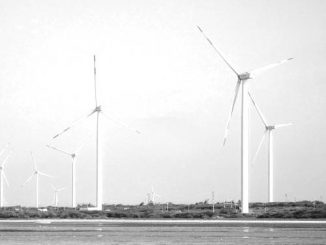It all comes down to a simple question. As Democracy began in ancient Athens around 2,500 years ago, everyone knew what was at stake: the distribution of wealth. There were no mathematical formulas necessary to explain this fact. One small faction had most of the wealth, and did not wish to change the system, another – predominantly those who were not rich – claimed a more equal and just distribution of Athen’s wealth would lead to a increasedly robust society. There is not much more to it – except the billions of Dollars, Euros, Pounds, and other treasure that has been invested by the rich to make it appear otherwise, such as investing in propaganda organisations such as the Adam Smith Institute.
Professor Charles S. Adams is a Physicist at the Department of Physics at Durham University. He blogs at Progressive Pulse
Cross-posted from Progressive Pulse
According to page 4 of the Principles of Economics by Mankiw –
economics is the study of how society manages its scarce resources.
or this recent post by Tim Worstall, Senior Fellow at the Adam Smith Institute:
there are unlimited human desires but only scarce resources with which to sate them.
This is easy to understand – there is a big but finite sized cake (the economy) and we all have a share. This raises the distributional question—who gets what share—that some economists are less keen to talk about but fortunately sharing the cake is relatively easy as long as it keeps on growing. As the post-war German Chancellor (1963 -1966) Ludwig Erhard said:
A compromise is the art of cutting the cake such that everyone believes they have the largest piece.
This is obviously easier if all the pieces are getting larger. Thus, arguably one of the greatest human achievement over the last two centuries has been the ability to make the cake grow exponentially such that—at least in principle—everyone should have access to a larger share. This is likely to continue, although we must now pay attention to the fact that any future growth needs to be within the constraints set by the environment, with a fundamental limit set by our ability to utilise resources in a way that is sustainable over the longer term. But the fact that the cake keeps on growing begs the question: What exactly is scarce? Certainly, not money. As Tim writes:
Money’s just the way we count who controls those resources
It’s good that Adam Smith Institute Fellows and Modern Money Theorists agree that it is all about resources because for a long time economists tried to write resources out of the script. As Martin Wolf, asked in the Financial Times in 2010 (July 12th)
Why were resources expunged from neo-classical economics?
At the level of government, money is not a constraint because sovereign governments can create money as and when it is needed. However as Tim says:
...printing more money doesn’t alter the fact that we must still choose which activities we’re to devote what resources to, there is no get-out clause here.
The important word here is `choose’—we get to choose. Money—our system of accounting—is the means by which we chose the relative value of different activities. The impact of these choices is huge. At the level of households, money is not just ‘an accounting tool’, it is often the deciding factor. When we place a wage cap (below the rate of inflation) on say nurses, society—via its elected representatives—is telling nurses that we do not value what you do as much as we used to, and they might be better off doing something else. No magic money tree (no triple lock) for nurses is because `we’—via our democratically elected leaders—chose it to be so.
Coming back to scarcity. If money is not scarce, what is? Not land! In the UK there are 4000 metres squared per person. Plenty for everyone before we even think about multi-storey. The problem with land is not scarcity it is distributional, but that is another story.* If land is not scarce, then may be it’s labour? The answer is a partial yes. But more fundamentally our major scarcity is actually time: the only thing we cannot grow is the amount of time we have available to complete a particular task. This is why productivity is so important, and why productivity roughly equals prosperity. Our ability to have a larger piece of cake is completely dependent on the ability to do more in the same time.
Where do gains in productivity come from? Mostly by getting smarter (investing in education), and by replacing human labour with machines (investing in new technologies). As I blogged a few weeks ago: science and technology are the greatest agents of collective human progress. Investment needs money but we are in luck because now everyone agrees that at the macroscopic level money is not a constraint, just a matter of choice and time.
If money is not the constraint, why are we not using it to increase our productivity? This takes us full circle to Tim Worstall’s point about the relationship between money and who controls the resources. The people that are stopping us are the vested interests whose wealth (or power) will be compromised by progress. Money—democratically owned by us in the form of fiscal policy—directs resource at the microscopic level, and we have the democratic power to chose the direction. We could choose to use our most precious resource—time—to learn, to innovate, to care and to build a better life for everyone.
* Our land distribution is highly skewed with the result that land use is inefficient. In countries with greater land scarcity like Singapore achieving efficient land use is a matter of national importance and controlled by the state.



Be the first to comment